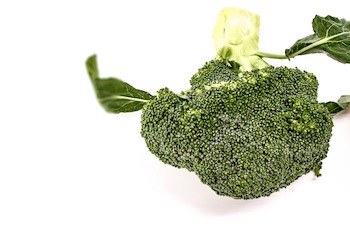We’ve all seen those movies where children refuse to eat broccoli, even though it’s one of the best foods for people. But can rabbits eat broccoli? The answer is yes, with some precautions.
Rabbits, unlike children, love broccoli, but this vegetable can cause them gas. While that’s not a major red flag, it can still be uncomfortable for them.
How about all the other parts of the broccoli, like the stems or leaves? Is it better to offer cooked or raw broccoli? Read this article to find out.
PROS
Broccolis have plenty of health benefits for your rabbit, including:
Plenty of fibers
Rabbits are herbivores, so they’ve adapted to fermenting fibrous foods in their intestines. Broccoli resembles the plants, herbs, and grass that rabbits would normally eat in the wild because it’s packed with fibers, which means it’s a good choice for your rabbit’s addition of leafy greens.
Crunchiness
Broccolis are crunchy, which helps trim your rabbit’s teeth. Many domestic rabbits have dental problems, including overgrown teeth, because their owners don’t feed them enough crunchy foods. Besides, crunchy foods can also clean your rabbit’s teeth and decrease the risk of dental infections.

Sulforaphane
Sulforaphane is a substance that’s been shown to treat atherosclerosis and high blood pressure in rabbits.
Vitamin A
It prevents eyesight problems.
Vitamin C
Great for healing skin lesions.
Broccoli has a few other vitamins and minerals in smaller quantities, all of which keep your bunny healthy and strong. These micronutrients include vitamin B6 calcium, iron, magnesium, phosphorus, and potassium.
CONS
Broccoli causes gas
That’s not a red-flag health threat for your rabbit, but it can be a nuisance. If you accidentally overfeed your bunny too much broccoli, the symptoms will worsen, and your fluffy friend will experience stabbing pains, loss of appetite, and runny stools.
Broccoli contains sugar, which is dangerous for rabbits
Rabbits aren’t equipped to digest sugar so sugar kills off their good gut bacteria. This leads to digestive issues in the short-term and immune problems in the long term.
Broccoli packs a lot of water
Due to its nature, broccoli packs a lot of water. Unfortunately, excess water leads to diarrhea, especially in combination with sugar.
How Much Broccoli Can I Feed My Rabbit? Recommendations and Tips
Start with one tablespoon
Bunnies don’t have robust digestive systems, and anything new can throw them off the edge. Broccoli especially can cause gas, bloating, and diarrhea if your rabbit isn’t used to having this treat. That’s why it’s a good idea to start with a small serving and notice any adverse reactions so you can adjust the portion size in the future.
Cooked broccoli is safe for rabbits, but it’s not recommended
Raw broccoli has more nutrients, it’s easier to serve, and it’s crunchier.
What about stems and plants?
Broccoli stems are safe for rabbits, but they cause more gas than broccoli leaves. Broccoli plants are safe for rabbits too, so you can feed them to your rabbit with no concerns.
Don’t offer your baby rabbit broccoli or any other vegetables or fruits until your rabbit is at least three months old.
Wash the broccoli carefully before feeding it to your rabbit to make sure it has no dirt or poisonous pesticides. In fact, it’s better to buy organic broccoli to avoid the risk of toxicity.
Tenderstem broccoli is safe too, and it’s even recommended for rabbits with anemia.
Mix and match
Broccoli shouldn’t be the only vegetable you offer your rabbit. Your bunny should receive a fresh mix of three or four veggies and fruit daily, and this mix should also be different from one day to the next.
The rule of thumb is half a tablespoon of broccoli per one pound of body weight per day.
Remember that you shouldn’t feed your bunny broccoli every day because it causes gas and abdominal discomfort, but two or three times per week is fine.
You can tell if your rabbit is in pain or experiencing severe discomfort if it has these symptoms:
- Loud gurgling noises from the belly
- Hard stomach
- The rabbit keeps its belly pressed on the cage

